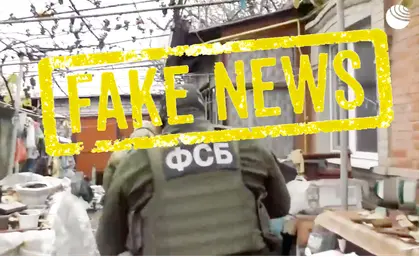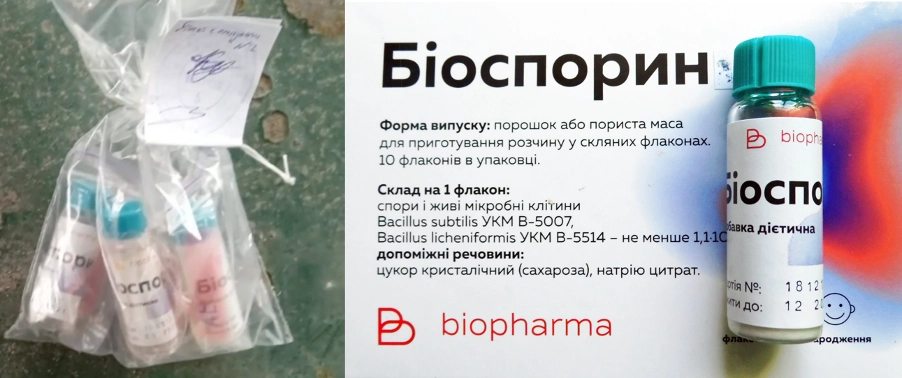Today the Pro-Kremlin news sites, TASS and Ria Novosti, had splash headlines announcing that the Russian Federal Security Service (FSB) had raided houses in the occupied territory of Zaporizhzia and foiled a Ukrainian special services “terrorist” operation.
The reports included an FSB video in which heavily armed agents raided two houses, arrested three occupants and recovered explosives and chemical substances which they proudly displayed to the camera.
JOIN US ON TELEGRAM
Follow our coverage of the war on the @Kyivpost_official.
According to the FSB account, which was gleefully repeated in the news reports, they had recovered several bottles labeled as “Biosporin” in Ukrainian, which the FSB claims were of US manufacture and are an analog of the chemical warfare agent “BZ.”
In fact, Biosporin is a Ukrainian-manufactured “probiotic,” used to treat indigestion and other intestinal conditions caused by a bacterial imbalance in the gut that was originally developed in Ukraine’s Institute of Microbiology and Virology of the Academy of Sciences of Ukraine. Unless the contents in the seized vials have been replaced, they are in no way dangerous.

Over 533,000 Pieces of Explosive Ordnance Disposed Since Full-Scale War Began
Screenshot of the recovered chemicals compared with the advertising.
Agent BZ (3-quinuclidinyl benzilate) is an odorless, environmentally stable, white crystalline powder with anticholinergic activity. It was discovered by the Swiss pharmaceutical company Hoffman-LaRoche in 1951 and intended to treat stomach ulcers. Once considered a potential incapacitating agent for military applications, it was replaced by more effective chemicals and is now used solely as a pharmacological tool to treat gastrointestinal, urological or respiratory conditions.
The press service of the General Staff of the Armed Forces of Ukraine released a statement in early February that Russia had conducted more than 800 chemical attacks against Kyiv’s forces since the beginning of the full-scale invasion.
The declaration by Russia that it found a chemical weapon in Ukraine’s hands may be to distract from its own use of banned substances or indicate an intention for a future “retaliatory use” of chemicals as weapons.
There have been a number of recent reports of Russian forces using chemical munitions containing chlorpicrin, a severe irritant, that causes severe inflammation of the eyes, nose and throat, and can result in significant injuries to the upper and lower respiratory tract.
However, it seems more likely that the individuals holding the Biosporin were doing so for medical purposes and it was stashed to hide its Ukrainian origin in an area occupied by Russian forces.
You can also highlight the text and press Ctrl + Enter







